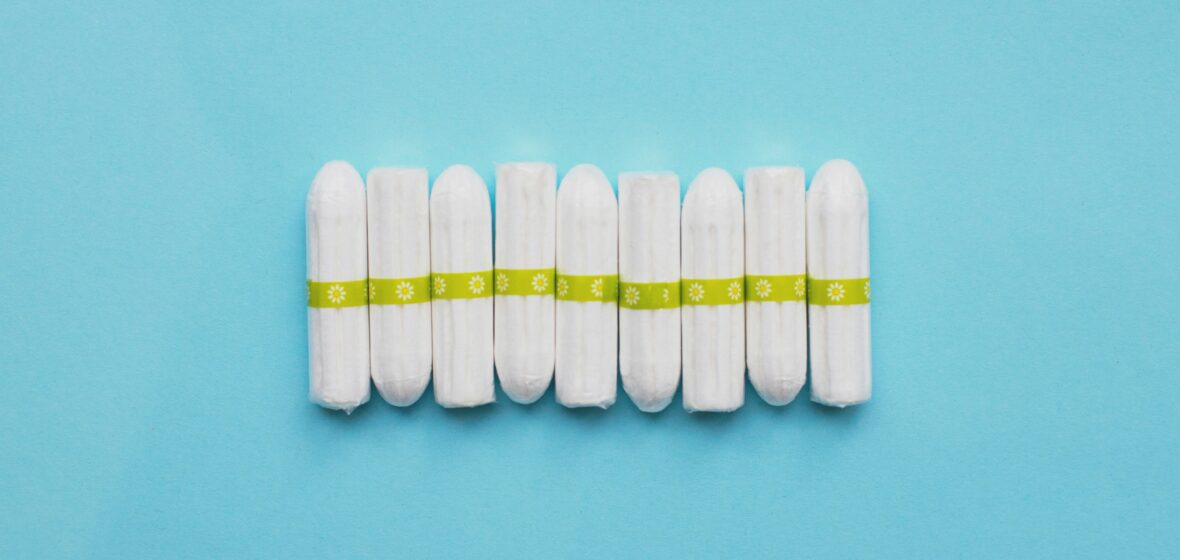As the cost of living crisis continues, a recent report indicates that period poverty in Australia is widespread.
An Australian survey of more than 153,000 people by charity Share The Dignity found three in five people with periods have struggled to afford sanitary products, and one in four have used the same tampon or pad for hours longer than is advised to save on costs.
In Australia, it is estimated that on average, a menstruating person will spend $10,000 in their lifetime on period products such as pads and tampons – not including pain management. Alarmingly, 73.6 per cent of the Share The Dignity survey respondents living in rural areas said they found it difficult to afford period products, and 63.1 per cent of urban respondents said the same.
WiseList is a grocery and money-saving app in Australia which compares product prices across major supermarkets. Based on WiseList data, in 2023 the ABC reported that the cost of period products had steadily increased year-on-year, peaking at an average of $11.13 in August 2023.
The app found in August last year, the average price of sanitary products, including period underwear, menstrual cups and all other product types, was $11.99 at Woolworths and $10.26 at Coles. By October 2023, WiseList said the average price of all sanitary items was still around $9.75. This is partnered by a rise in most – if not all – essential household items.
In April 2023, Plan International Australia (PIA) commissioned YouGov to collect data on the cost of living crisis and period poverty amongst 500 Australian people who menstruate, in both city and regional areas, aged 18-42. PIA designed the survey together with Sexual and Reproductive Health Rights experts; Water, Sanitation and Hygiene (WASH) professionals; and Gender in Emergencies specialists.
The results found that more than 6 in 10 Gen Z (born 1995 – 2009) and Millennial (born 1980 – 1994) women were finding it more difficult to pay for menstrual health products than before the cost of living crisis. Indeed, 64 per cent of Gen Z respondents were struggling with the cost of period products.
When survey respondents were asked how the struggle to meet the cost of menstrual products was affecting their lives, 37 per cent of respondents said it was effecting their mental health and well-being. This was a more urgent issue for those outside of the capital cities (48 percent), those not working (45 per cent), those renting (46 per cent), and those on household incomes under $50K (47 per cent).
For Indigenous young women, girls and gender diverse young people living in remote communities, the costs of menstrual health products are significantly higher than in urban centres. At the time of the Plan International survey, a packet of pads cost on average of $10 to $15, and some survey respondents said a pack of pads might cost $25 in more remote and rural areas. Further from urban centres, there is also limited access to pain relief, and underwear and reusable menstrual products are often either not available, or unaffordable.
Where accessibility is impossible, laws are broken
The lack of affordability and accessibility of period products has resulted in desperate measures by the women who need them, which is being met with strong legal consequences in some highly publicised cases.
In January, a 31-year-old woman was charged with stealing $10 worth of sanitary products in the West Australian town north of Perth. A trial date requested by the police prosecutor was set by the court for July 29, but the charge was discontinued in July. It echoed a familiar situation. West Australian police fined a woman $500 for stealing a packet of tampons worth $6.45 from a service station in Coolgardie under the provisions of a newly introduced Criminal Code Infringement Notice system.
States, territories and local councils are responding in a piecemeal way, with some introducing local initiatives and others legislating that free period products must be available.
In NSW, the Inner West Council installed free period product dispensaries in council facilities, and there are free products in NSW schools, but there is no extensive or comprehensive period poverty measures for other at-risk communities in NSW.
Just over a year ago, the ACT passed the Period Products and Facilities (Access) Bill, which holds the ACT government responsible for providing free period products at designated, accessible venues.
Following lobbying by charities and consumer advocacy organisations, the government scrapped the goods and services tax (GST) from menstrual products in 2019 per the A New Tax System (Goods and Services Tax) (GST-free Health Goods) Determination 2018.
According to the ACCC, the tax on period products cost taxpayers who menstruate $30 million a year and removing the GST from these products resulted in approximately a 9.1 per cent reduction in the retail shelf price.
This year’s federal budget pledged an investment of $12.5 million over the next four years to improve access to menstrual products for Indigenous women and girls who experience higher rates of period poverty, but there is no consistent national policy around affordable, accessible menstrual products nor education to prevent and address stigma amongst some communities.
There are other nations and states, such as Scotland via the Period Products (Free Provision) Act 2021, that have adopted legislation to ensure free period products, but many more jurisdictions introduce bills that are never passed.
Period poverty is a global disaster for women though, and in the Asia Pacific, women in regional and remote areas of PNG, Samoa, Timor-Leste, Vanuatu and Tahiti are even more disadvantaged since menstruation is seen as shameful and dirty in many communities, and sanitary products are equivalent to a week of wages. Period poverty is a global health issue, but it is also a legislative issue.
ACT is the first jurisdiction in Australia to legislate free period products
The ACT government committed $2.8 million for the provision and rollout of free period products in last year’s budget. Victoria made it a policy in 2022, but it has not been enshrined in law.
On 7 June 2023, ACT Labor Member for Yerrabi, Suzanne Orr MP’s Period Products and Facilities (Access) Bill 2022 passed in the ACT. The Period Products and Facilities (Access) Act 2023 (ACT) requires period products to be freely available at designated venues – including libraries, universities and schools – across the ACT. Additionally, in line with this new legislation, informative, age-appropriate printed and online information on menstruation will be available in many languages to ensure communities have access to education free of stigma and myths around menstruation.
The ACT is the only jurisdiction in Australia to pass such a reform, but it is evidence that such a progressive measure can attract broad public and parliamentary support.
Yerrabi residents are typically aged between 30 to 40 and the electorate has more children than any other in Canberra. The northernmost electorate is also the most culturally and religiously diverse community in the ACT, making it an ideal microcosm for trialling the effectiveness of a culturally diverse, integrated educational campaign on menstrual health and encouraging discussion and transparency around menstruation and reproductive health within communities where the topic may be – or has been – taboo.
Orr tells LSJ, “There’s 25 members of the ACT parliament and the Bill went through unopposed. What’s been interesting is how much men are becoming more involved. As debates have gone on, and I’ve done a lot of debates on menopause and menstruation, including within workplaces, there’s been more and more men involved in these conversations. While I believe women should lead the charge, since they have lived experience, we’re not going to get the change, and the broad support required for that change, if men don’t understand the issues and why we’re supporting these issues.”
Orr became aware of the urgent need for accessible period products when Ngunnawal Street Pantries – which provide food, clothing and household items – shared concerns that many of the people needing help in the community were asking for period products.
She explains, “In 2019, we began researching this area. In Canberra, which is quite affluent, there may not have been so much attention on this issue previously.”
Orr says the initial rollout of the new legislation requiring government to provide free products in public venues has resulted in distributing products to schools, libraries, family and youth centres, and medical facilities with further community and not-for-profit services to follow.
“The Bill creates a requirement to distribute period products, but it doesn’t detail how or which products to provide,” she clarifies. “In some instances, it may be via a dispenser, but in other instances, it may be provided directly by a social worker. The reason for that is that is to make sure that people can access products as easily as possible through a range of methods. It also means that where reusable products may be more suitable in some situations, or pads and tampons elsewhere.”
Promisingly, there has been little resistance from stakeholders, but there have been some opinionated keyboard warriors.
Orr says, “Community stakeholders want to be involved, and we had a lot of participating during the consultation process from multicultural community groups. There was a little bit of resistance online, with comments along the lines of asking whether we’d make toilet paper free too. There has been a generational divide in some feedback about the appropriateness of discussing menstruation, but the more I talk about it publicly, the more others feel they can talk about both menstruation and menopause. It’s a health issue.”
Orr says that the next steps include advocating and supporting other Australian jurisdictions to introduce and implement similar legislation — “it’s not hard,” she says — and to continue to discuss menstruation and menopause in the public sphere in an effort to remove the lingering belief that these topics are taboo.
“As part of the consultation process into period poverty, we were talking a lot more about menstruation and menopause,” says Orr.
“One of the big areas where we still need to work on change is in making workplaces more responsive to the needs of those experiencing menopause and perimenopause. That requires both legislation and policies, and it cuts across various areas so it’s more complicated than this Bill has been. We need to start looking at how workplaces become more accommodating. For example, if people have hot flushes or cramps, it is a legitimate reason to work from home, or people might need to wear baggier, more comfortable clothes. There are also simple measures that could be implemented, such as allowing people to bring a fan to work where someone is experiencing hot flushes.”
Orr concludes, that just as providing period products to those who need them and cannot afford or access them easily, the answers are there if the government and private sector are prepared to acknowledge the needs of women.
She tells LSJ, “It’s not rocket science, it just requires a change of thinking.”




